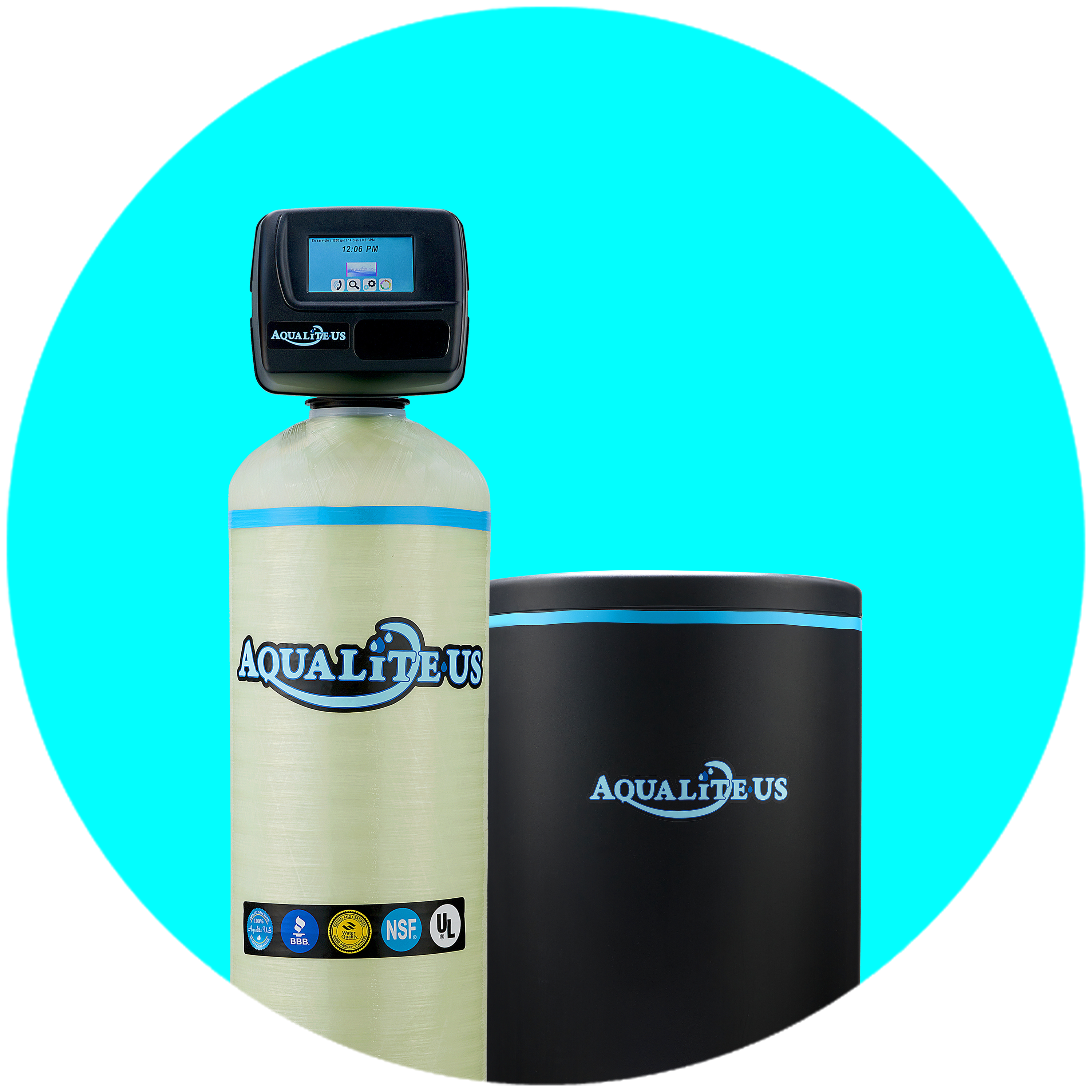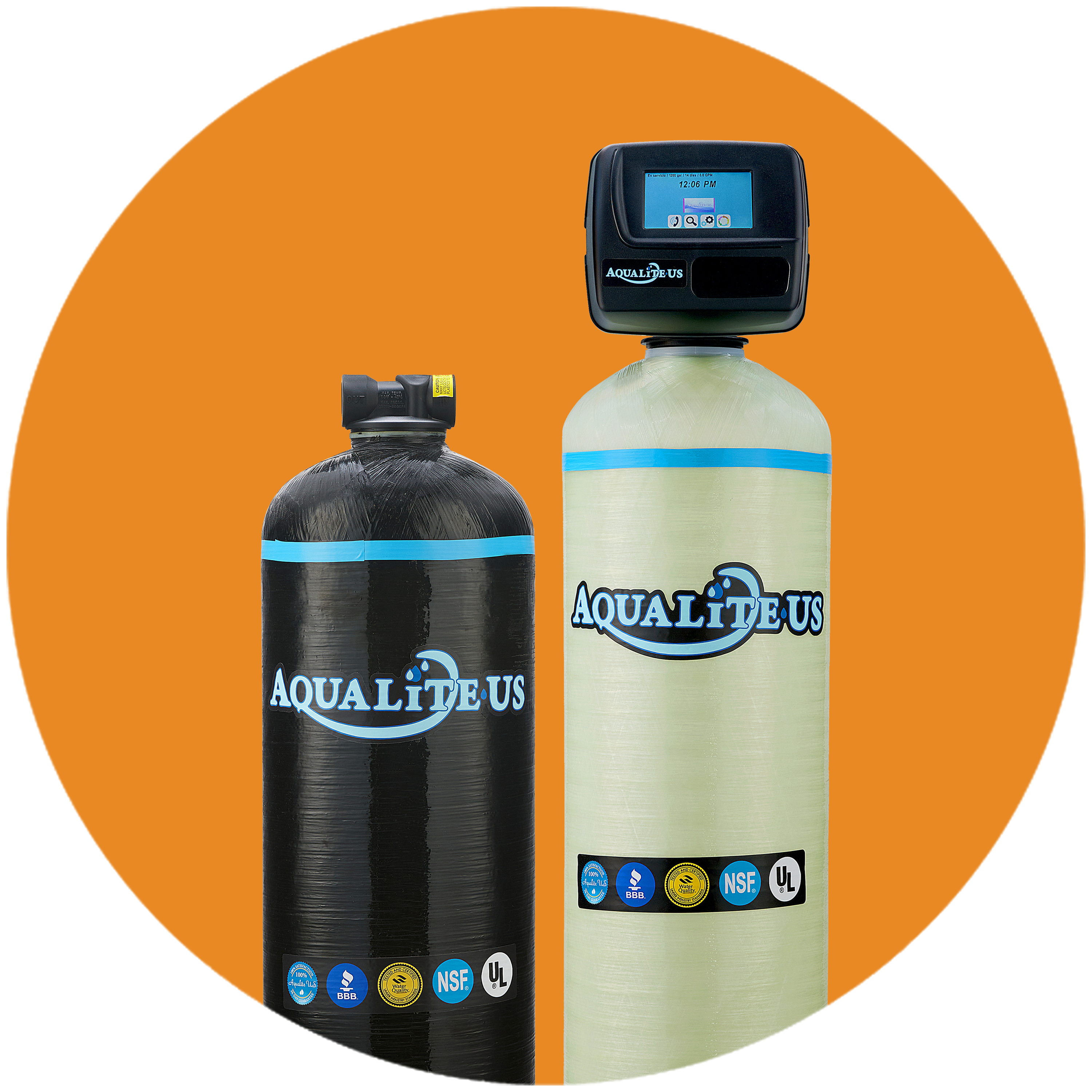Learn about the most common water softeners and what you need to know to make the right choice for your home and family.
A high-quality water softener is essential for homeowners looking to improve their water quality. While you may have heard of water softeners, many need to be made aware of the multiple types of water softeners available and the benefits they give based on the homeowner’s specific water quality needs.
There are five common types of water-softening systems to choose from. This article covers the top 4 standard water softeners to help you understand what you should know before purchasing a water softener system for your home.
1. Salt-Based Water Softener
Salt-based water softeners work through an ion exchange process, where a resin bed filters your home’s water and gives off sodium particles. A salt-based water softener solution exchanges hard minerals like calcium and magnesium from your water supply for sodium particles.
Once the resin bed has reached a specific saturation point in this water softener system, it begins cleaning the water. During this process, the system back-flushes water to help rid the water supply of harmful minerals, while the sodium particles are replenished and help soften the water.
A salt-based water softener might benefit your home, depending on your specific needs. Salt-based water softening systems won’t dry your skin and can keep your hair healthy. It helps your clothes maintain brightness in the wash and have an overall clean feeling that is essential to a happy home and water system.
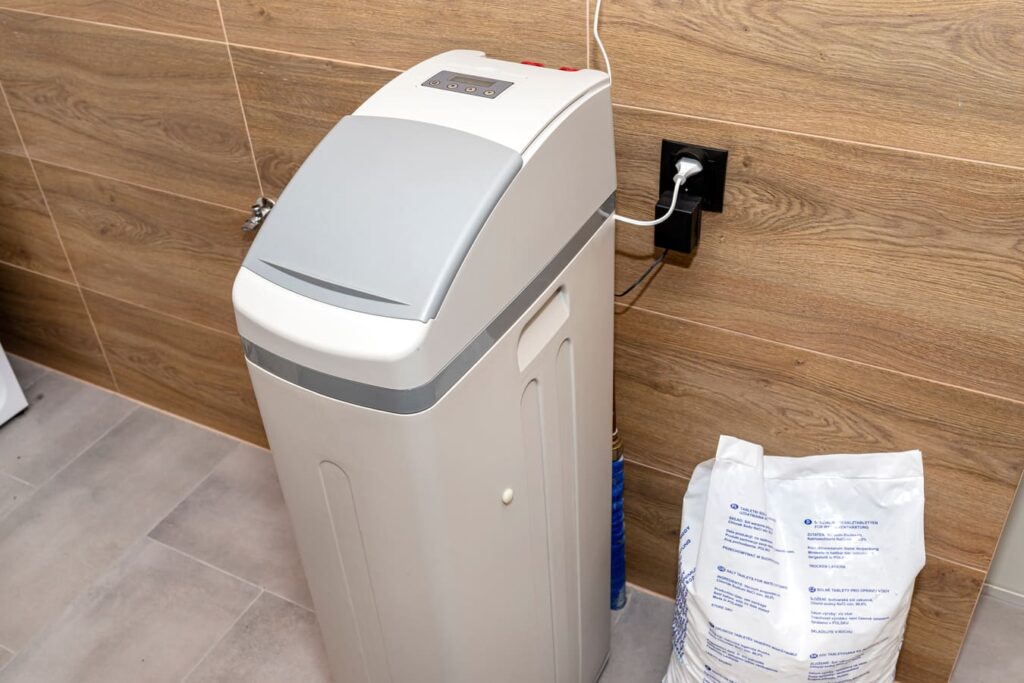
Pros of a Salt-Based Water Softener
- They provide your entire home water filtration coverage.
- There are various price options to suit your budget.
- It lasts up to 15 years if you perform regular maintenance.
Cons of a Salt-Based Water Softener
- It adds sodium to your water supply, which some homeowners are uncomfortable with.
- You will have to change the resin frequently.
- The system’s lifespan and quality could vary with the frequency of use.
2. Salt-Free Water Softener
This type of water softener differs from a salt-based softener, specifically regarding how each system addresses minerals in your water supply. A salt-free water softener doesn’t reduce minerals from your home’s water supply in the same way that a salt-based softener does. Instead, a salt-free softener “conditions” your water instead of softening it, retaining the minerals but changing their form.
Salt-free water softeners aren’t technically softeners because they don’t adhere to the standards of soft water. These systems won’t reduce the excess minerals in your water supply; instead, they crystallize the calcium in water rather than reduce it entirely. During this process, minerals in your home’s water supply are converted into hardness crystals that won’t bind to surfaces like untreated hard water.
While you can’t achieve soft water with a salt-free system, you can benefit from a salt-free softener to prevent calcium from adhering to your water pipes. However, this system is ultimately less effective than a salt-based water softener and typically less helpful for treating your home’s water softness. Despite this, a salt-free softener might be right for your home if you prefer a solution that treats your water without adding salt.
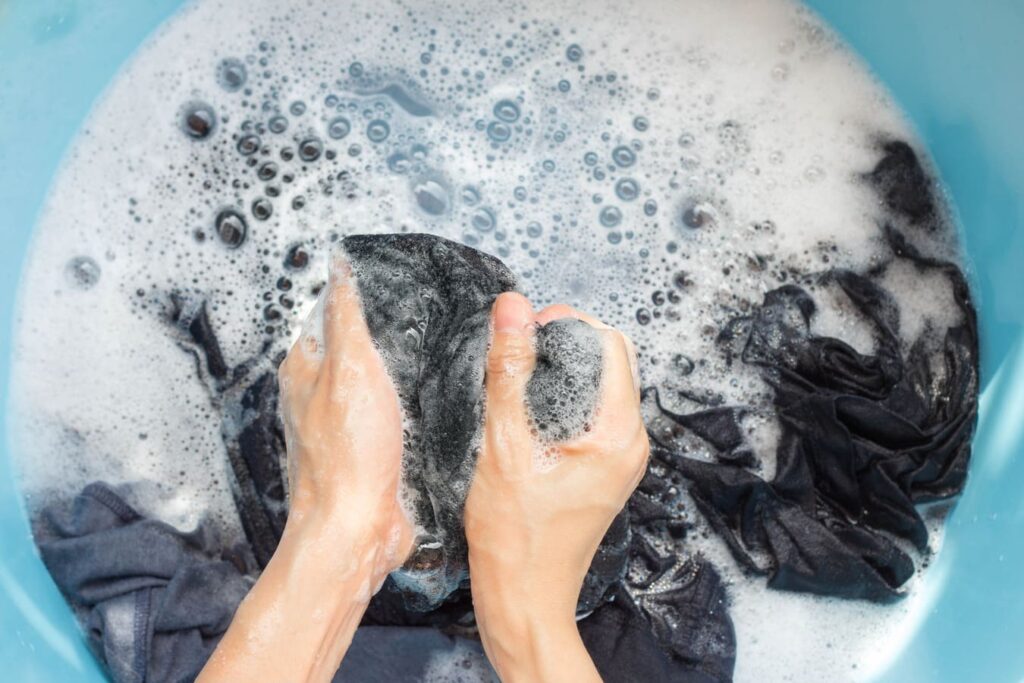
Pros of a Salt-Free Water Softener
- No additional sodium is added to your water.
- No excessive mineral buildup will occur.
- This system requires less intensive or frequent maintenance compared to salt-based systems.
Cons of a Salt-Free Water Softener
- It doesn’t eliminate minerals in your water supply.
- It is less effective than other systems if your household consumes high water.
- The cost is initially higher than a salt-based system, though this might change over time due to maintenance costs.
- It is ineffective in treating extremely hard water.
3. Dual-Tank Water Softener
A dual-tank water softener system uses ion exchange models with two resin tanks, separating it from a standard, salt-based water softener. The two tanks in this system help the softener process and filter large portions of minerals and high-water volumes. One tank in the dual-tank water softener system is always available, and the other is constantly regenerating water.
These softeners are typically more expensive than traditional salt-based or salt-free water softeners. The two tanks help your home’s water supply remain functional, as at least one tank generates water at any time. You should consider a dual-tank water softener system if you live in a house with high water usage, irregular schedules, or multiple household members.
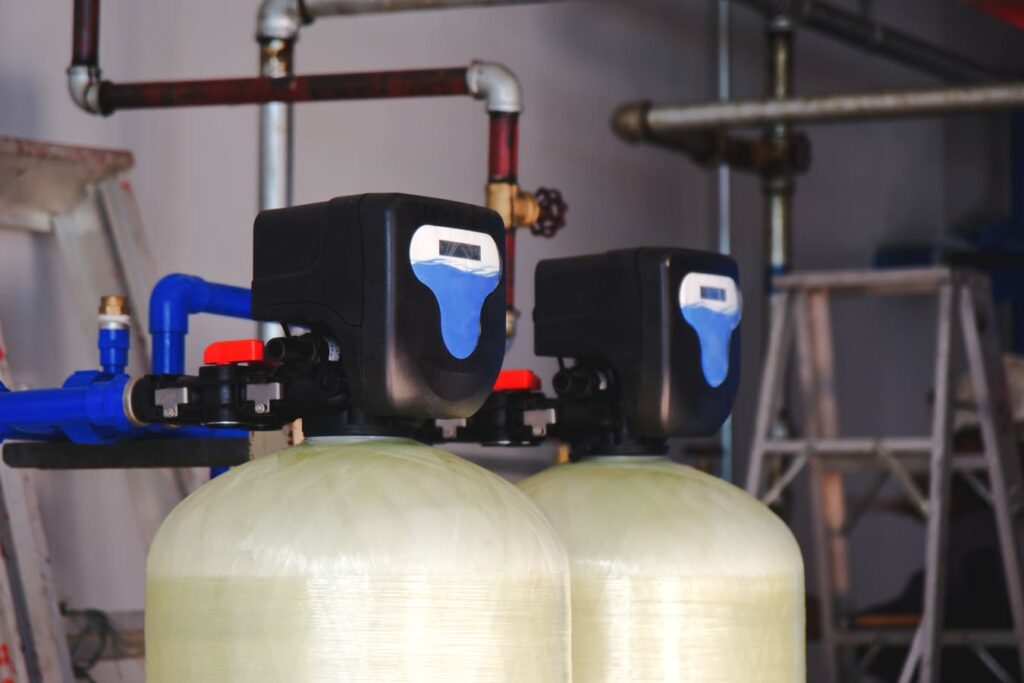
Pros of a Dual-Tank Water Softener
- Your home will receive higher volumes of soft water.
- The system is helpful for households with high water consumption.
- It can filter water with heavy mineral buildup better than other systems.
Cons of a Dual-Tank Water Softener
- They are much more expensive than standard water softeners.
- This system requires frequent resin changes.
- Your home will need ample space to accommodate the system.
4. Shower Head Water Softener
A shower head water softener is ideal for homes that only want a softening solution in their shower. A shower head water softener reduces the minerals from a home’s shower head and can filter water as it comes through the shower head. This water softener guarantees you aren’t bathing in mineral-heavy water, helping protect your skin and hair from extreme dryness.
This water softener system is affordable compared to other methods because it doesn’t require a softener system for your entire home. Shower head water softeners last multiple years with a filter to replace four times annually.
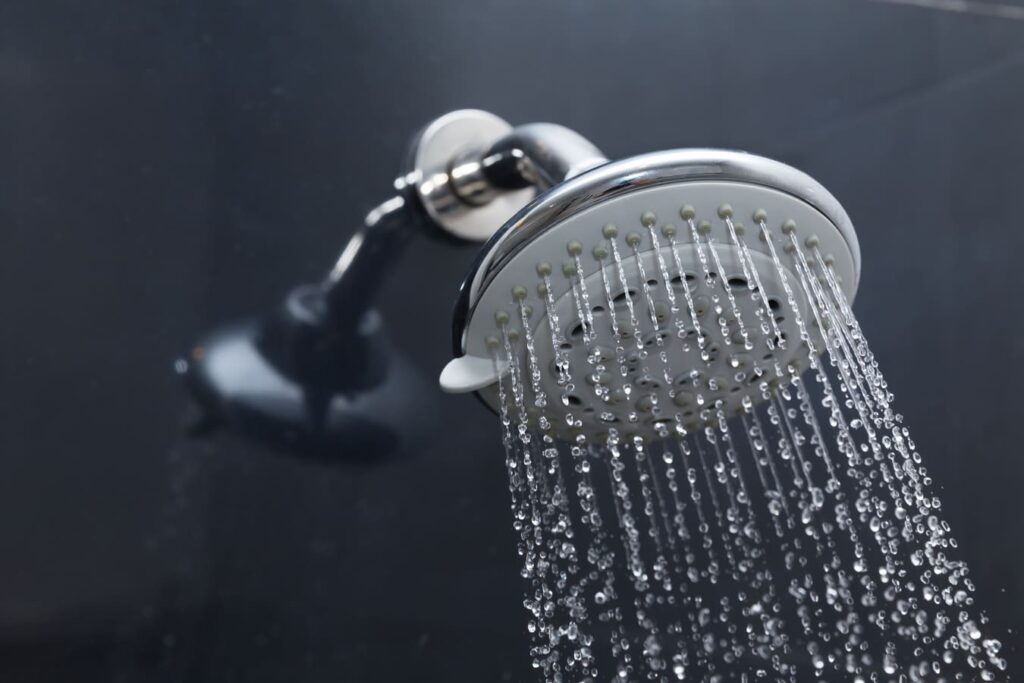
Pros of a Shower Head Water Softener
- It eliminates minerals that dry out your skin and hair when you shower, making washing your body and hair easier.
- It is a long-lasting solution with regular maintenance and filter changes.
- Affordable for individuals that only want a solution for their bathing needs.
Cons of a Shower Head Water Softener
- It doesn’t treat your home’s entire water system.
- You must regularly replace the filters to keep them functional and practical.
- These systems are typically salt-based and aren’t the best option for people that want to avoid additional sodium in their water supply.
Contact Aqualite US for the Best Water Softener Solution
Ultimately, you will find the best water softener solution by consulting professionals for a recommendation based on your home and specific needs and water quality. Aqualite US provides whole-home water softeners, purification, and conditioning systems to provide the purest water possible. With Aqualite, you can access safe, clean drinking water free of harmful minerals and contaminants.
Contact the experts at Aqualite US today to get started on finding a water-softening solution today.


